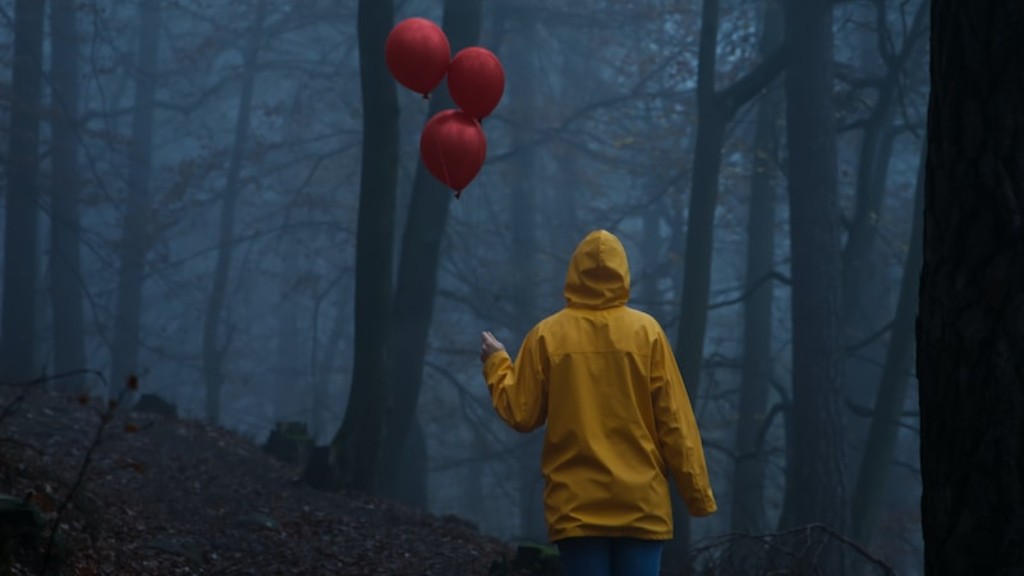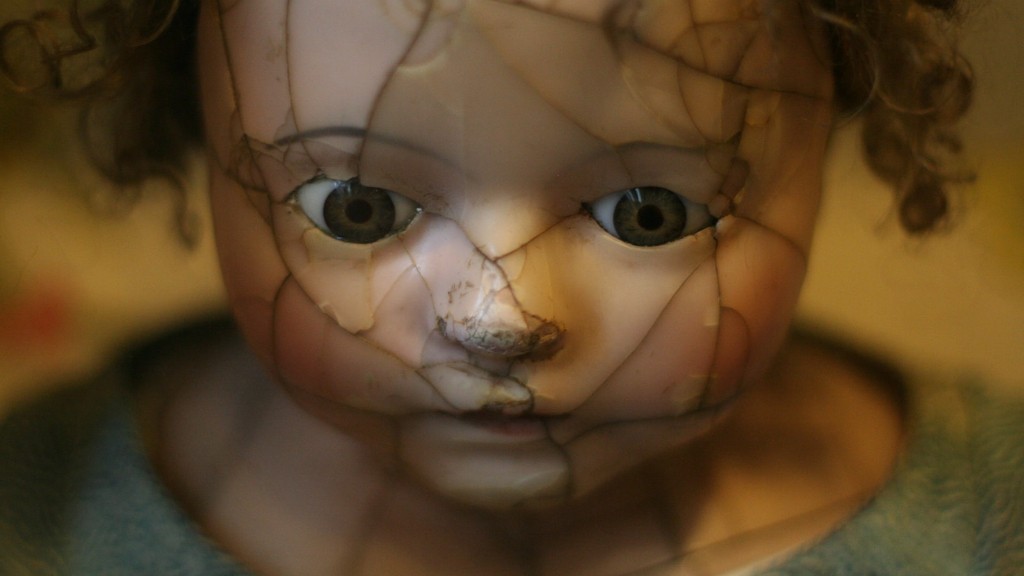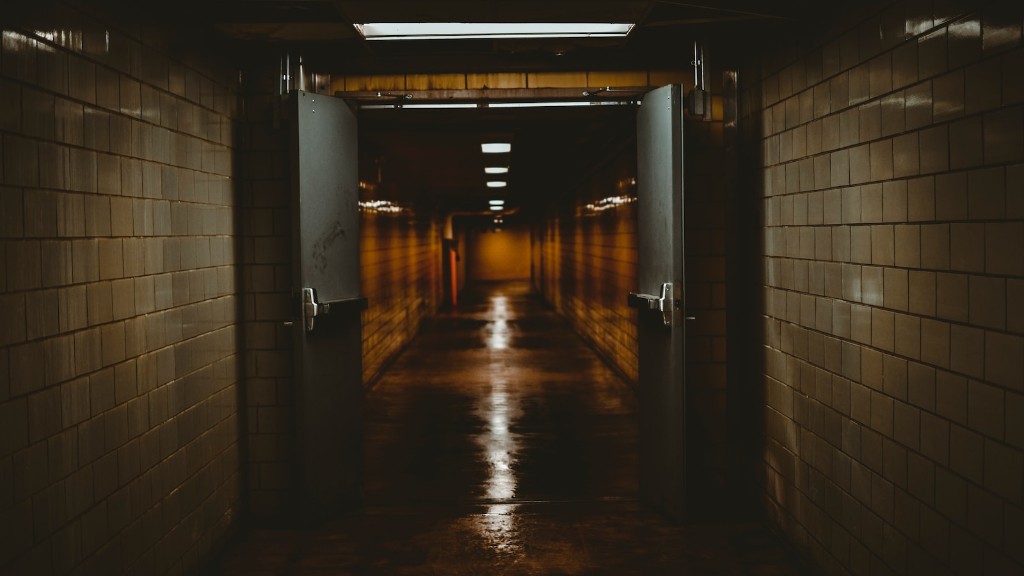Since the 1950s, horror movies have been a popular form of entertainment. They allow people to vicariously experience fear and suspense in a safe and controlled environment. For some people, this can be a helpful way to work through real-world trauma. Horror movies can provide a sense of catharsis, helping people to confront and overcome their fears. In addition, the suspense and suspenseful music in horror movies can help to trigger the fight-or-flight response, which can be beneficial for people who have experienced trauma.
Watching horror movies can help people process and overcome real-world trauma. Horror films often deal with theme of overcoming adversity, which can be reassuring for people who have experienced trauma. The suspense and fear caused by horror movies can also help people work through their feelings of anxiety and fear. In addition, the characters in horror movies often have to face their fears in order to survive, which can be inspiring for people who are dealing with trauma.
How can horror movies help with trauma?
Exposure therapy is a type of psychological treatment that involves exposing the patient to the thing that they are afraid of. The purpose of this is to help the patient learn to cope with their fear and eventually overcome it. This type of therapy has been found to be particularly helpful for treating anxiety disorders, such as post-traumatic stress disorder, phobias, and obsessive-compulsive disorder. The treatment works by retraining the amygdala— the fear center of the brain—through a process of activating it via exposure to the feared object or situation.
Horror can help us understand ourselves, too. People also engage with scary media to gain insight into themselves, the experts said. In a 2022 study, Dr Scrivner, Dr Andersen and their colleagues interviewed horror fans, including people attending a haunted house, about why they enjoyed scary experiences.
The study found that some people enjoy horror because it helps them understand their own fears and anxieties. For example, one participant said that watching horror movies helped her “confront her fears and work through them”.
Other participants said that horror helped them feel more comfortable in their own skin. One woman said that after watching a particularly gruesome horror movie, she realized that she was “not as delicate as [she] thought”.
So if you’re feeling brave enough, don’t be afraid to watch a horror movie or two. You just might learn something about yourself in the process.
Why do trauma survivors like horror movies
Many trauma survivors find themselves feeling out of control in their everyday lives. Watching a horror movie that they can turn on and off at will can help re-establish a feeling of control. This can be a helpful way to cope with the trauma and work through the feelings of powerlessness.
It’s interesting to note that watching stressful movies may actually have some benefits in the long run. When we watch a horror movie, for example, our bodies release cortisol in response to the stress. Once that stress is gone, our bodies automatically release dopamine, which can help us feel better. This emotional rollercoaster may be very beneficial to viewers, as it can help us cope with stress in a healthy way.
Is horror healing for trauma?
Horror can help us with grief, anxiety, depression, and a number of other disorders. For someone experiencing a deep loss or processing trauma, it becomes less about the deaths and more about the survivor. In other words, horror can be a form of catharsis. By confront our fears head-on, we can learn to deal with them in a healthy way.
Horror entertainment is a popular genre for many people because it provides a thrill and adrenaline rush. For some, it can be a way to process and understand their fear. Horror fans know that the experience is not a genuine threat and this knowledge of personal safety is one reason they continue to watch scary movies.
Why are horror movies good for society?
But watching certain types of films can actually help relieve stress and anxiety, according to a new study. Researchers found that individuals who watched horror films had a decrease in both their heart rate and cortisol levels — the hormone associated with stress.
So next time you’re feeling overwhelmed, try popping in a scary movie. It just might be the stress-relief you need.
It’s important to be aware of the effects that watching horrific images can have on our mental health. Doing so can help us to avoid triggering unwanted thoughts and feelings, and to manage our anxiety levels more effectively.
Why are horror movies important to society
Scary movies help us to release our anxiety and fears by providing a cathartic outlet for our negative emotions. When we watch scary movies, we are able to purge our aggressive emotions, which helps us to feel better and less stressed.
We found that horror fans were more psychologically resilient during the pandemic, with movies like Contagion serving as a sort of practice simulation for the real thing.
Is liking horror movies a trauma response?
For many people with post-traumatic stress disorder (PTSD), horror movies can serve as a trigger for their condition. In some rare cases, watching these films can actually cause PTSD. This is because the intense fear and anxiety that is typically provoked by horror movies can mimic the feelings of terror and helplessness that are experienced by PTSD sufferers. As a result, watching horror movies can be a extremely triggering and even harmful experience for those with this condition. If you or someone you know suffers from PTSD, it is best to avoid watching horror movies altogether.
Movies can be so messed up that they can leave us regretting ever having watched them at all. The Human Centipede is one such movie – its disturbing images and content can leave an indelible impression on viewers. Other movies like Man Bites Dog, Jojo Rabbit, and The Hills Have Eyes can also be incredibly messed up, with their graphic and disturbing images. And then there are movies like Irréversible and Society, which are so mired in violence and depravity that they can be difficult to watch. American History X is another movie that is so intense and graphic that it can be hard to stomach. These are just a few examples of movies that can be so messed up that they can leave us regretting ever having seen them.
How watching movies can benefit your mental health
Researchers at University College London and Vue Cinema found that people who watched movies experienced improved mental focus and fixation towards the movie. This focused watching (according to the study) helps to improve cognition and memory. The study found that people who watched movies had better mental focus and fixation than those who didn’t watch movies. This focused watching helps to improve cognition and memory.
Watching a horror film can be a great way to safely experience stress responses. By reacting to the simulated danger through a narrative that either resolves itself or ends, we can experience the positive side effects of our parasympathetic nervous system activating. This can lead to increased feelings of happiness and relaxation.
Are scary movies good for your heart?
While watching a scary movie, your heart rate and blood pressure increase, which can be a risk factor for heart attack. So, if you have a heart condition, it’s best to avoid watching horror movies.
Emotional trauma can be a difficult thing to heal from, but there are some things that can help. One is movement and exercise, as it can help repair your nervous system. Another is to connect with others and ask for support. Lastly, volunteering can also be helpful in healing from emotional trauma.
What is the most traumatizing horror movie
These 32 horror movies are so disturbing and disgusting that you’ll never unsee them! From Hostel to Saw to The Thing, these movies will leave you shaken and horrified. So if you’re looking for a good scare, make sure to check out one (or all!) of these films.
Horror movies can provide a short-term relief from anxiety and depression. The adrenaline released during a horror movie can help to stabilize your mood and provide a distraction from negative thoughts. However, it is important to note that horror movies should not be used as a long-term solution to anxiety and depression. If you find yourself repeatedly watching horror movies in an attempt to cope with your symptoms, it is important to seek professional help.
Conclusion
Horror movies can provide a sense of catharsis for people who have experienced real-world trauma. Through watching characters face and overcome their fears, viewers can vicariously confront and triumph over their own demons. In this way, horror movies can be highly therapeutic, offering a safe way to process and release the trauma that is weighing us down.
Although horror movies may not seem like the most obvious choice for helping people overcome real-world trauma, they can actually be quite helpful. For one, they can provide a much needed distraction from the trauma. They can also help people to process and work through their feelings about the trauma. Finally, horror movies can help people to feel less alone in their experiences, as they can see that other people have gone through similar things and come out the other side.




